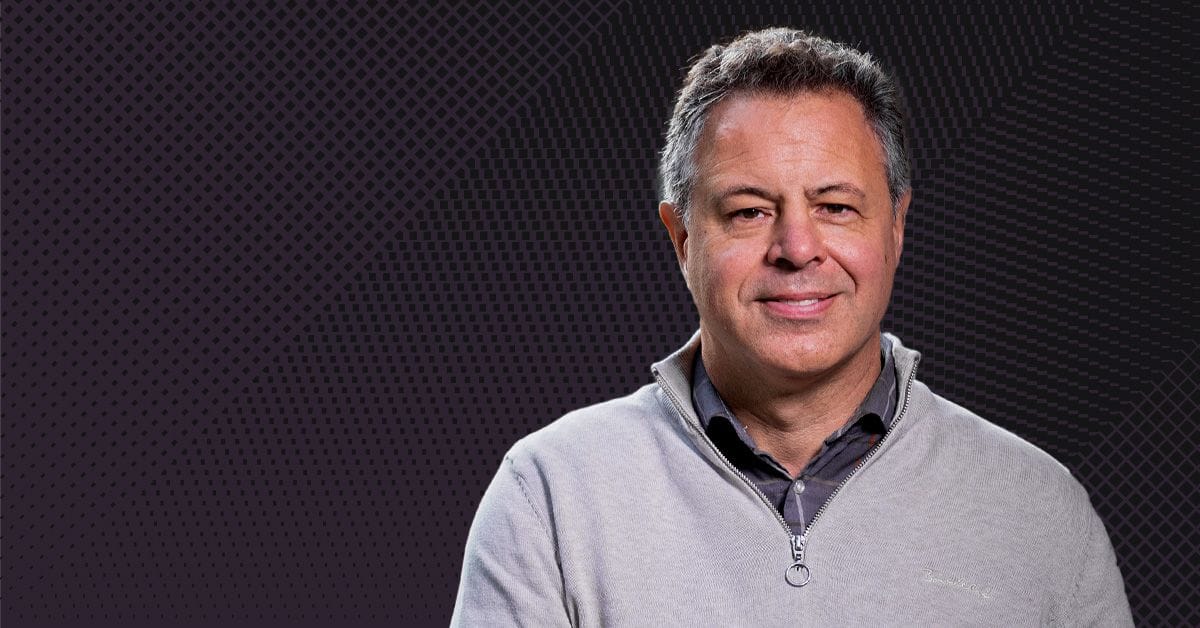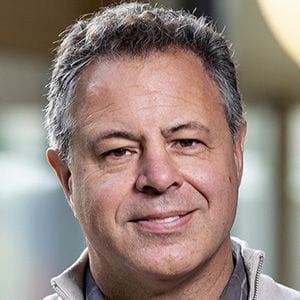In the first of a new interview series featuring authors and librarians from around the world, we hear from Prof. Cousins as he discusses his work and the importance of open science on the changing landscape of research communication.

As part of a new series here on ACS Axial, we’re interviewing authors and librarians from around the world to find out more about their research, their published work, and the impact that open science is having on a changing landscape of research communication. This time, we talked with Professor Ian Cousins of Stockholm University. In addition to his research and teaching, Prof. Cousins is also an Associate Editor for Environmental Science & Technology and ACS Environmental Au.
OA means that readers and journalists can get access to the research directly, with no problems.

Hello, Prof. Cousins—could you tell us a little about yourself and your current research focus?
I'm an environmental chemist; I focus on the sources, transport, fate, and exposure of persistent organic pollutants. Most of my research recently has focused on per- and polyfluoroalkyl substances or PFAS, also known as "forever chemicals". This has become a very hot topic in recent years, especially in the last decade, so a lot of my funding is to study these substances.
You published a paper in 2022. How would you summarize that for someone unfamiliar with the area?
I've been noticing that the permissible levels of PFAS in health advisories and drinking water guidelines have been steadily falling over the last 20 years as we develop a better understanding their toxicity. Now they're almost unmeasurably low. I compared the health advisories and drinking water guidelines to levels in the background environment and found that we cannot escape exposure to these substances; they're everywhere, even in our rainwater. This discovery led to a lot of media attention with headlines like "It's raining PFAS." We've contaminated the planet, and we can't reverse that contamination, and we're now all exposed at a level which could be considered unsafe, even in very remote areas. I think there were over 300 news articles resulting from the paper, and I was talking to journalists nonstop for about 4 weeks.
It's fundamentally a very scary problem: we know there are health effects associated with exposure, things like lower immune response or higher risk of some types of cancer. The problem is that you can't easily remove PFAS from drinking water, and people are realizing that it's going to cost billions and billions of dollars to address - and maybe we don't have that money available because we have other priorities. With hindsight we can say that these chemicals shouldn't have made it into the environment in the first place, and we have to learn from that going forward. Some companies are under a lot of pressure because they released the chemicals into the environment, and they're being sued as a result.
Your article was published in Environmental Science & Technology. How was the experience?
I find that Environmental Science & Technology is very reliable; the review process usually has a fast turnaround of about 4-6 weeks, and you always get very good quality, expert reviews due to its good reputation. The correction and production processes are also very efficient and professional.
It's one of my preferred journals to publish in, because the whole author experience is very professional, the article looks great when it's published, and it has a reputation as one of the best journals in our field—which means it's also good for your own reputation as a researcher to publish in that journal.
We also got help with spreading the news about the paper from the team at ACS, so that helped us get widespread attention alongside the publicity we were doing through the University. Overall it was a very positive experience—and I have to say, that's usually the case with ACS.
Did publishing open access (OA) help with spreading the word about your article?
It definitely helps. We have to publish everything as immediate OA at Stockholm University and open access definitely helps with visibility. I also use several well-known social media platforms to discuss the paper in addition to press releases and so on.
OA means that readers and journalists can get access to the research directly, with no problems. Journalists definitely appreciate getting quick access to the papers!
The article was published under your institution's read and publish agreement with ACS—what was the process like?
We know that it's an available option, and it means that we don't have to pay for OA from our research funds because it's covered centrally by the university library. Everything happens automatically, so I don't even have to think about it. Everything that we published for ACS is automatically OA in this way, so it's a very efficient process and that's great for us. It would be great if it was the same for all other organizations around the world, so that all papers could be published OA like that—but I know we're quite privileged to have that process at our university.
What are your thoughts on open access as a concept?
OA is definitely the way to go. We didn't always publish in that way; some of my older papers are not available as OA. But now, the accessibility to everyone is really important and open science, I think, is the future.
In our case, most of our funding is from the public, and I myself am paid by the state. If we're being paid by taxpayers, and the research is also being paid for by taxpayers, I think it's only fair that the papers are publicly available. From an ethical point of view that makes sense to me, and I feel that it should be the same everywhere.
It's more difficult when you have industry funding; we have a problem in working with industry because we have these open principles and some industries don't want to work with us, because we must publish everything that we do through OA, and they want more control over access to the results. But even though there are some barriers, I do think open science is the way forward.
You mentioned open science—what are your thoughts on some of the other open science workflows?
I've published some preprints; we don't always do it, sometimes that's down to a lack of time, but I definitely support publishing preprints because they can really help with getting results out quickly. In some cases we might be a bit more protective of our results because we know something similar is being worked on, but most of the time I am definitely very supportive of the concept of preprints.
I also like the concept of open peer review. I participated in one open peer review for a very well-known journal where they promote that option. The editors ask you to disclose your name, which I did freely. I was appropriately critical in my review, but I wanted to be open that it was me making these comments. I think that level of transparency is valuable; you just have to use appropriate and professional language and stick to scientific principles. In Sweden, we follow the same process when we review professors; names are given so you know the recipient will be able to see everything you've said, even if you're proposing to reject someone's application for a professorship.
We have the open data principle in our projects, too—we publish all our datasets. European Union funded projects actually require you to publish your data in open repositories, even if this means double reporting because your papers are open access too, which means that all of our data sets are accessible through the journals in which we publish. Regardless, it's great to have those data available, even if as a reader you don’t always go and look them up. We usually start with the papers and then see where the data are stored. Some of my students have conducted analysis on datasets that are openly available, and I definitely think it's the way forward.
Where do you see the open science movement in 10 years' time?
Hopefully, the rest of the world will come into line with what we're doing in Europe. I think we're really on board with open science already at our university, but I don't think all parts of the world are. I would like to see that change, so that the US and China, for example, also incorporate these principles. This would mean a fair playing field—so that every researcher is sharing their data, and not have one group publishing open data but not being able to access similar data from groups in another country. Maybe there could be ways to incentivize this, so that there are different types of metrics that score you highly for being more open in your research practices.
On the whole, I'd hope for a wider adoption of open science principles beyond a mostly European movement—that would be my hope in 10 years' time.
Finally—what do you think you'd be doing if you weren't a researcher?
I think I've always been academically minded, so I think I would have probably ended up in a learning environment. I have many relatives who are who are teachers, so I can imagine that could have been my alternative profession.
I actually don't teach much at the moment, but I really enjoy it when I do—it currently only takes up about 15% of my time, but that includes supervising more junior students (it doesn't include supervising Ph.D. students, which qualifies as research time); supervising masters and undergraduate students is considered part of teaching.
Even when I've done the most teaching at various points in my career, it's been low compared to some organizations where faculty are expected to teach for 50-60% of their total time. I know that I'm lucky that my institution supports us if we want to have more focus on research; though I do love teaching my courses, it would be hard to give up the research and discovery process. When your group finds out something that's new, and you're really eager to publish it and see what the reaction is—that whole process is great.
That said, there is a bit of handle turning, which I don't enjoy so much. For a student to get their Ph.D. here in Sweden, they have to publish a minimum of four papers. I feel that it would be better if we could focus instead on doing really good research, really novel stuff - when you get these really high impact studies and the feedback you get, the whole process is very rewarding.
